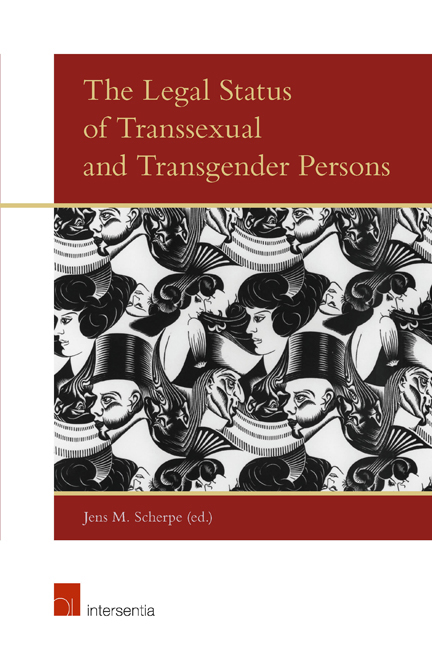Book contents
- Frontmatter
- Dedication
- Preface
- Contents
- List of Contributors
- Introduction
- PART I MEDICAL/PSYCHOLOGICAL VIEWS
- PART II CHRISTIAN VIEWS
- Transgenderism and the Christian Church: An Overview
- Metamorphosis and (Trans) Migrations: Spiritual Dimensions of Gender Transition
- PART III LEGAL VIEWS
- Europe
- Asia
- Australia and New Zealand
- North and South America
- PART IV CONCLUSION
Transgenderism and the Christian Church: An Overview
from PART II - CHRISTIAN VIEWS
Published online by Cambridge University Press: 28 November 2017
- Frontmatter
- Dedication
- Preface
- Contents
- List of Contributors
- Introduction
- PART I MEDICAL/PSYCHOLOGICAL VIEWS
- PART II CHRISTIAN VIEWS
- Transgenderism and the Christian Church: An Overview
- Metamorphosis and (Trans) Migrations: Spiritual Dimensions of Gender Transition
- PART III LEGAL VIEWS
- Europe
- Asia
- Australia and New Zealand
- North and South America
- PART IV CONCLUSION
Summary
INTRODUCTION
Transgenderism is a relatively rare, complex and genuinely perplexing phenomenon. It is poorly understood by the majority of most populations, challenges commonly held ideas about sexed difference and can generate powerful feelings of unease. It is particularly challenging to religious traditions that vest the differences between the sexes with great theological significance, as is the case for the major branches of Christianity, Roman Catholicism and Eastern Orthodoxy, and the conservative Protestant churches. As a consequence, the overwhelming majority of the 2.1 billion Christians in the world belong to churches which are officially unsympathetic to the claims of transgender people. However, over the last couple of decades there has been a very significant increase in the number of liberal and mainstream Protestant denominations which welcome transsexual and transgender Christians as congregational members and affirm their ministry as leaders and teachers. So, 35 years after Sky Anderson became the first transgender person to be a Christian minister, a growing number of Protestant churches in Europe and the United States of America ordain transgender people as pastors and teachers of the faith and conduct weddings for post-operative transsexual people in their confirmed gender.
Like all religions, Christianity is actively engaged with the moral and spiritual formation of persons and communities. As such, it has both a more holistic character and a more intimate influence in shaping personal identity and meaning than other forces that seek to influence or regulate the character of social life – like the law. The matter of gender identity and more specifically the issues raised by transgenderism are complex for religious authorities and churches in the modern world, in part because the implications are not simply restricted to the rights of particular individuals or those of a minority group. Rather, inevitably, they have an impact upon communities, relationships between believers, and upon shared understandings of the sacred. The phenomenon of transgenderism and the presence of transgender and transsexual persons within churches have raised three related questions for Christian thinking and practice: Should transgender persons be able to participate as members of Christian congregations, and if so, on what terms? Can people be married in a confirmed gender? Can transgender persons be ordained or licensed as ministers or priests? Responses to these questions have varied significantly between, and in some cases within, different Christian traditions and denominations.
- Type
- Chapter
- Information
- The Legal Status of Transsexual and Transgender Persons , pp. 27 - 76Publisher: IntersentiaPrint publication year: 2015



